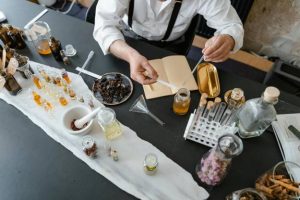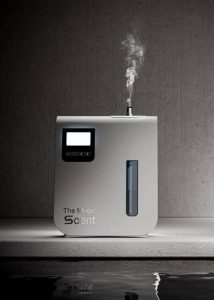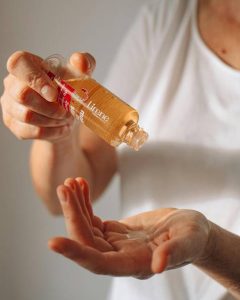Understanding Aromatherapy: A Holistic Approach to Wellness
Aromatherapy is a form of medical science that has been in practice for thousands of years with its main practice being the use of plant oils to help sustain the four basic human faculties, that is body, mind, heart, and spirit. This form of complementary therapy is as old as civilization and uses plant aromatic liquid to boost the health status of individuals and lengthen their lifespan. The origins of aromatherapy can be traced back to ancient Egypt, China, and India especially when plant products were used for medical purposes, religious ceremonies, and cosmetics. well, are Today, as some modern the of research psychological studies state.ple and enhance their quality of life.
The existence of aromatherapy can be dated back to the early civilizations of Egypt, China, and India where plant products were applied for medical, religious, and beautification purposes. well, are Today, as some modern the of research psychological studies state.
Due ways still to prove which special wonderful characteristics work. effects that The of are oils presented are essential by processed oils essential through on oils, the very human ensures following a unique body system in which information from the olfactory system goes directly to the limbic system of the brain the emotional part, the memory, and the stress center.
The Effects of Neurological Aromatherapy
Research has revealed that the human brain decodes scents in one way in contrast to other styles.
When dynamic essential oil particles pulse into the air system, the molecules get into the olfactory nerve contained in the nasal passageway. These receptors are connected to the limbic area of the brain which is further divided with support to the amygdala of emotion and hippocampus of memory.
For people who are seeking a way to include these advantages into their lifestyle, there are scent diffuser machines that are ideal when it comes to the dispersal of oils in your house or workplace.
The Science Behind Essential Oils and Emotional Wellness

The captivating power of oils lies in their ability to engage our sense of smell in a way that directly impacts the brain’s system. The hub, for emotions, memories and stress management. Inhaling these aromatic blends sparks reactions that have an effect, on our emotional well being and stress-coping mechanisms.
The Effects of Aromatherapy on the Nervous System
The way our brains handle smells is unique compared to how they process sensory information. When you breathe in molecules of oils they quickly engage with the smell receptors, in your nose. These receptors then send messages right to the system. To the amygdala and hippocampus. Which play a role, in managing feelings and recollections.
If you’re looking for a method to enjoy these advantages effectively and effortlessly in your home or office environment scent diffusers could be the solution to ensure a continuous and regulated dispersal of essential oils.
Common Essential Oils and Their Therapeutic Properties
Lavender: The Relaxation Champion
The soothing effects of oil are well known for their ability to relax and reduce stress levels according to several scientific studies that have shown its effectiveness, in reducing anxiety levels and enhancing the quality of sleep while inducing a sense of calmness and relaxation.
Peppermint: Energy and Focus Booster
Peppermint oil is well known for its capacity to improve focus and energy levels while enhancing abilities. Athletes and students have noted attention. Decreased mental exhaustion, after incorporating peppermint essential oils into their routines.
Eucalyptus: Respiratory Health Support
Much is known of the inflammatory and decongestant abilities of eucalyptus essential oil which may assist respiratory health to relieve cold symptoms and make for easier breathing.
Practical Applications of Aromatherapy
Home and Personal Wellness
Using oils in your routine can change your living space and personal care habits for the better! Whether you’re diffusing them around your home applying them topically or adding them to your bath time rituals. These natural extracts provide a range of wellness benefits and solutions.
When exploring aromatherapy products, visit The Magic Scent for high-quality essential oils and diffusion equipment designed to enhance your wellness journey.
Safety Considerations and Best Practices
Using oils can be beneficial. It’s important to use them carefully and responsibly to stay safe and get the most out of them! Before using any oil on your skin or inhaling it directly from the bottle (which you shouldn’t do often) make sure to dilute it and do a small patch test on your skin to check for any reactions before going all in with it. It’s always an idea to talk to healthcare before diving into essential oils if you have any health issues already or if you’re pregnant or taking care of young children – better safe, than sorry!
Dilution Guidelines
- The usual mixing ratio is 2, to 23 drops of oil, for every teaspoon of carrier oil.
- It’s not recommended to use oils on your skin without diluting them first.
- Make sure to do a trial patch test before applying it all.
Future of Aromatherapy: Research and Innovation
The field of research is actively looking into the uses of essential oils, in complementary healthcare practices for various purposes such as stress relief and pain management while also exploring their potential benefits in supporting the immune system and possibly as treatments, for antimicrobial purposes.
Emerging Research Areas
- Management of disorders
- Dealing with long-term pain management
- Assistance, for well-being.
- Immune system regulation
The practice of aromatherapy combines knowledge with science to promote overall well-being by utilizing the natural essences of plants to enhance physical and emotional health gently and organically.
As studies progress to confirm the healing benefits of oils and their therapeutic value are recognized further by individuals, more and more people are uncovering the life-changing impact of this age-old practice of healing. With a desire, for stress alleviation better sleep quality, increased concentration, or overall assistance aromatherapy presents itself as a potent approach to complete health and well-being.
Aromatherapy in Professional Settings

Workplace Wellness and Productivity
Businesses today are realizing the benefits of using aromatherapy to improve the atmosphere in their workplaces more each day. By incorporating oils into their spaces they can tackle various workplace issues effectively leading to a more upbeat and efficient work environment.
- Essential oils such, as bergamot and chamomile have shown the potential, to alleviate stress in the workplace by fostering a tranquil atmosphere that could help reduce employee burnout and enhance mental health.
- Certain oils, like rosemary and lemon, have been associated with boosting performance by enhancing clarity and concentration while potentially improving problem-solving abilities according to research studies.
Integrative Medicine and Aromatherapy
Complementary Healthcare Approaches
Potential Applications
- Pain Management
- Anxiety and Depression Support
- Sleep Disorder Interventions
- Immune System Modulation
Psychological Impact of Aromatherapy
The psychological benefits of aromatherapy extend far beyond simple pleasant scents. Neurological research demonstrates that specific essential oil compounds can trigger complex neurochemical responses:
- Lavender oil can stimulate the brain to release serotonin, potentially helping manage mood disorders
- Citrus oils may activate neurotransmitters associated with elevated mood and reduced stress
- Sandalwood has shown promise in reducing anxiety and promoting emotional balance
Global Perspectives on Aromatherapy
Different cultures have unique approaches to utilizing essential oils and aromatic compounds:
Traditional Chinese Medicine
In Chinese Medicine (TCM) aromatherapy is seen as a way to balance one’s life energy known as qi by using oils that are chosen to align the body’s systems and emotional well-being.
Ayurvedic Practices
Ayurvedic practitioners use essential oils to balance doshas, addressing individual constitutional needs through personalized aromatic interventions.
European Holistic Approaches
European practices, in aromatherapy, commonly highlight the use, in settings and prioritize evidence-backed studies and treatment methods.
Environmental and Sustainability Considerations
The main properties of this kind of oil are related to inflammation and the decongestant effect, so it may help with colds and facilitate better breathing.
The increased awareness of consumers on sustainable production and appropriate acquisition methods was arising in the aromatherapy industry.
Responsible Harvesting
- Supporting local agricultural communities
- Implementing organic farming methods
- Minimizing environmental impact during extraction processes
Ethical Production
Conscious consumers now demand transparency in essential oil production, seeking:
- Fair trade certifications
- Sustainable harvesting techniques
- Environmentally responsible packaging
Personal Aromatherapy Toolkit: Essential Recommendations

For individuals beginning their aromatherapy journey, consider developing a foundational collection:
Starter Essential Oils
- Lavender (relaxation and sleep support)
- Peppermint (energy and focus)
- Tea Tree (immune support)
- Eucalyptus (respiratory health)
- Bergamot (stress reduction)
Essential Equipment
Investing in quality tools can significantly enhance your aromatherapy experience. A reliable scent diffuser machine serves as an excellent starting point for consistent, controlled essential oil distribution.
Advanced Exploration and Continuous Learning
The practice of aromatherapy is constant. Growing, combining scientific studies, with age-old traditions to create a dynamic field that enthusiasts can explore and embrace:
- Attend workshops and certification programs
- Follow peer-reviewed research
- Experiment responsibly with different essential oil combinations
- Consult healthcare professionals for personalized guidance
By staying curious and open-minded, about it all individuals have the chance to discover the benefits of aromatherapy as a wellness method.
Psychological and Neurological Dimensions of Aromatherapy
The Intricate Connection Between Scent and Memory
One intriguing aspect of aromatherapy is how deeply it intertwines with the way our memories and emotions work together in the mind. A remarkable link is formed between scent triggers and our memories and emotional responses through the pathways of our sense of smell.
When someone breathes in an oil the fragrant molecules move through the nose. Connect with scent receptors. These receptors then send signals away, to the system, especially the amygdala and hippocampus – parts of the brain linked to emotions and memory.
Neurological Mechanisms
- Direct neural pathway between olfactory system and emotional centers
- Rapid trigger of memory recall and emotional responses
- Potential for therapeutic interventions in memory-related conditions
Emotional Regulation Through Aromatherapy
Essential oils can serve as powerful tools for emotional self-regulation. By strategically selecting and applying specific aromatic compounds, individuals can potentially:
- Manage stress responses
- Modulate anxiety levels
- Promote emotional balance
- Enhance mood stability
Technological Innovations in Aromatherapy Delivery
Modern technology has revolutionized how we experience and utilize essential oils. Scent diffuser machines represent a significant advancement in controlled, consistent aromatherapy application.
Advanced Diffusion Technologies
- Ultrasonic diffusion methods
- Nebulizing diffusion systems
- Smart home integration
- Programmable intensity controls
Research Frontiers and Emerging Applications
Clinical Research Directions
Contemporary scientific investigation is exploring increasingly sophisticated applications of aromatherapy:
Neurological Investigations
- Potential interventions for dementia management
- Exploring impacts on cognitive decline
- Investigating neuroplasticity stimulation
Mental Health Applications
- Complementary treatment for anxiety disorders
- Support strategies for depression management
- Stress reduction protocols
Cultural and Anthropological Perspectives
Aromatherapy transcends mere medical intervention, representing a profound intersection of cultural practices, traditional wisdom, and scientific understanding.
Historical Context
Different civilizations have long recognized the transformative power of aromatic compounds:
- Ancient Egyptian healing practices
- Traditional Chinese medicinal techniques
- Ayurvedic holistic approaches
- Indigenous healing traditions worldwide
Personal Empowerment and Holistic Wellness
Mindful Integration Strategies
Successful aromatherapy practice requires:
- Self-awareness
- Intentional application
- Continuous learning
- Personalized experimentation
Recommended Exploration Approach
- Start with foundational knowledge
- Consult healthcare professionals
- Practice responsible usage
- Maintain an open, curious mindset
Ethical Considerations and Sustainability
As consumers increasingly seek out platforms for high-quality essential oils, understanding the broader ecological and ethical implications becomes crucial.
Sustainable Sourcing Principles
- Supporting fair trade practices
- Protecting biodiversity
- Minimizing environmental impact
- Ensuring ethical extraction methods
A Holistic Vision of Wellness
Essential oils aren’t a passing health fad; they combine knowledge with contemporary science to provide a tailored route, to overall well-being encompassing physical and emotional health as well, as mental wellness.
Exploring the world of aromatherapy is an introspective experience that demands both patience and an inquisitive spirit, along with a dedication to uncovering more about oneself.
As scientific studies shed light on the connections, between substances and the human body functions we find ourselves on the brink of a deeper and more comprehensive grasp of wellness and recovery.







